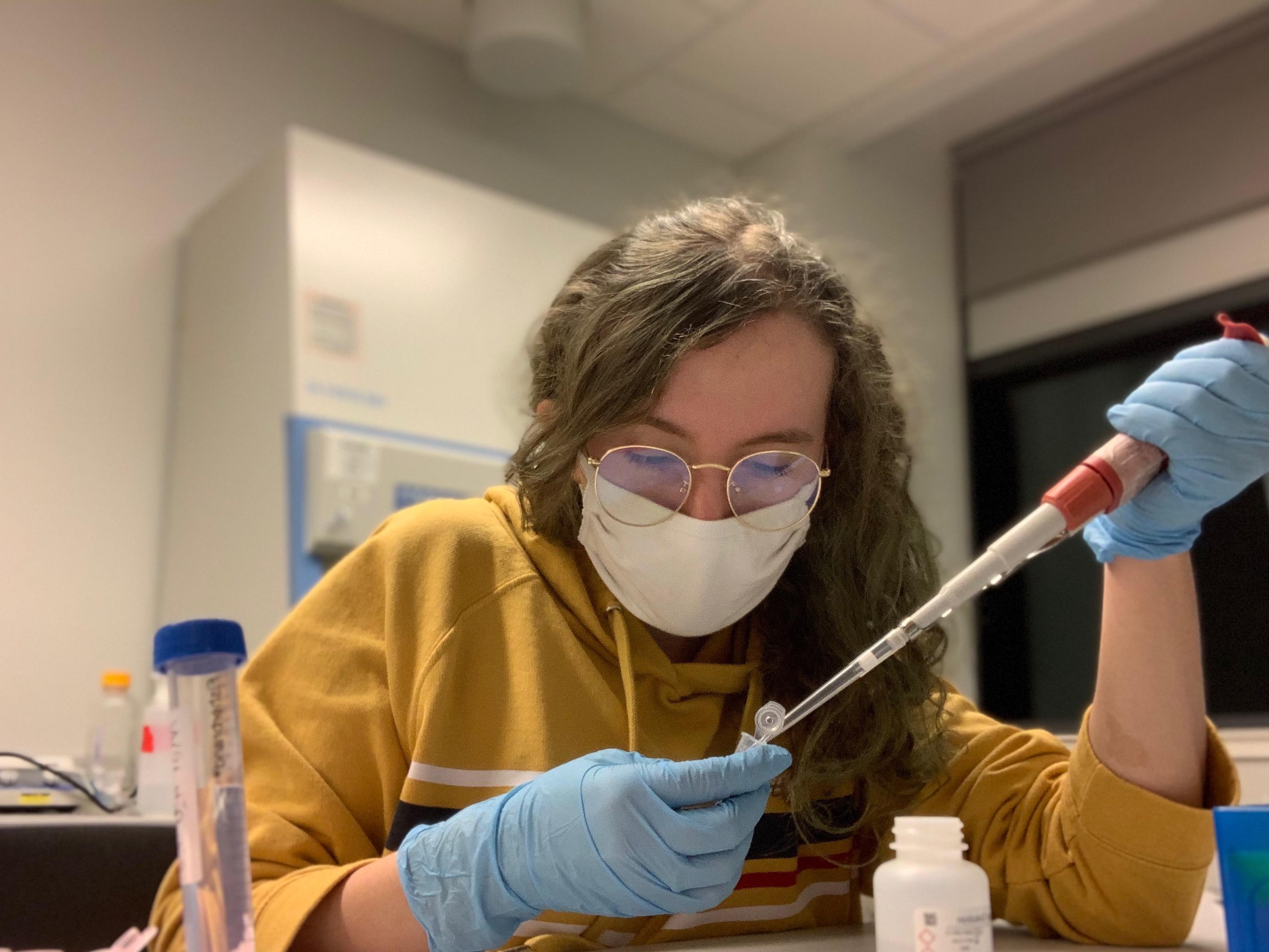2019 to 2021
BD Effects on Rice Creek's amphibian species: Filling in the gaps
Major: Zoology
Faculty Advisor: Dr. Nicholas Sard
Others involved: Dr. Jennifer Olori and Kassie Marino
The focus of my research is using molecular biology techniques of extracting genomic DNA to detect prevalence of Batrachochytrium dendrobatidis (Bd) in the amphibian population at Rice Creek Field Station. Bd is an economically and ecologically significant disease that burdens amphibian populations, that is highly infectious and fatal and infects over 200 species of amphibians. The burden of disease in a changing climate (due to anthropogenic climate change) increases the risk of devastating population decline.
This project, along with numerous projects I have done with Dr. Sard have taught me a lot about the scientific method, how it works and sometimes does not work, the importance of science, etc. Being a research student has given me a valuable experience and insight into independent research, allowing me to understand the realistic aspects of it. Things will not work, methods will fail, no conclusions will be drawn and you just have to keep going.
A memorable research experience at Rice Creek Field Station has been collecting water samples with Dr. Sard during his capstone class and snow shoeing with Dr. Maria Sagot's animal ecology course.
I grew up in Poughkeepsie, NY. As a young child, I was very interested in parasitology and medical TV shows which were my first exposure to science and my curiosity for science/medicine was born. Originally following high school, I planned to go into the military to handle the military dogs but in my senior year of high school, I was hired in a small animal veterinary clinic. This experience gave me insight to science and veterinary medicine. As a first generation, disadvantaged and learning disabled student, I never did well in high school and I was not looking at college as an option. My interest in veterinary medicine gave me the motivation to go to community college. During my freshman year of college, I went to a community college as a general science major. I took my first EVER chemistry and upper level math course in community college. My success in these courses gave me the confidence I needed to pursue a higher degree in science and here I am.
My future plans are to go to veterinary school to become a wildlife veterinary epidemiologist or a veterinary disease ecologist. After graduation from SUNY Oswego, I plan attend a graduate program in public health or spend time gaining experience in laboratory/field setting to determine my graduate plans.



